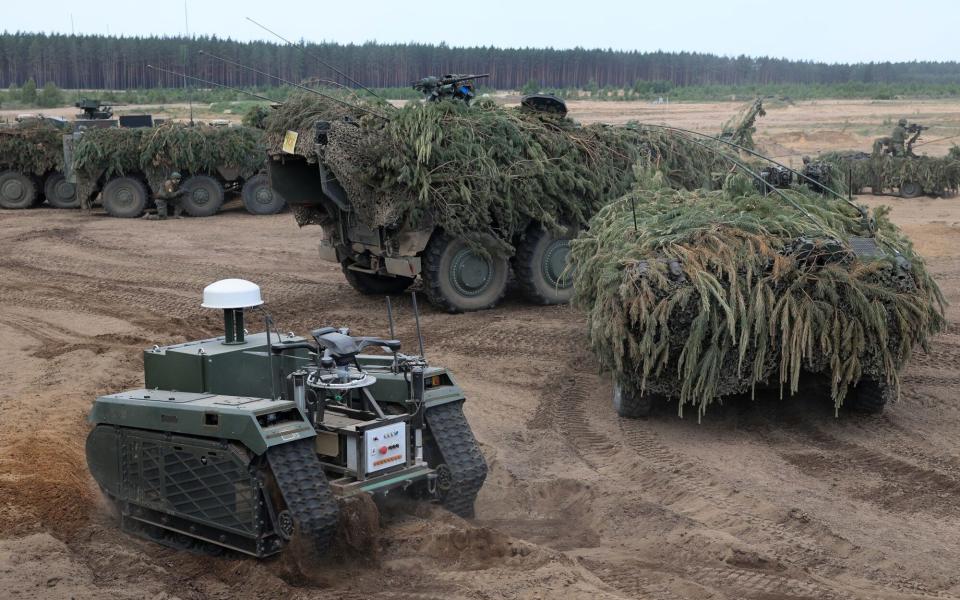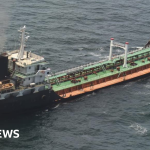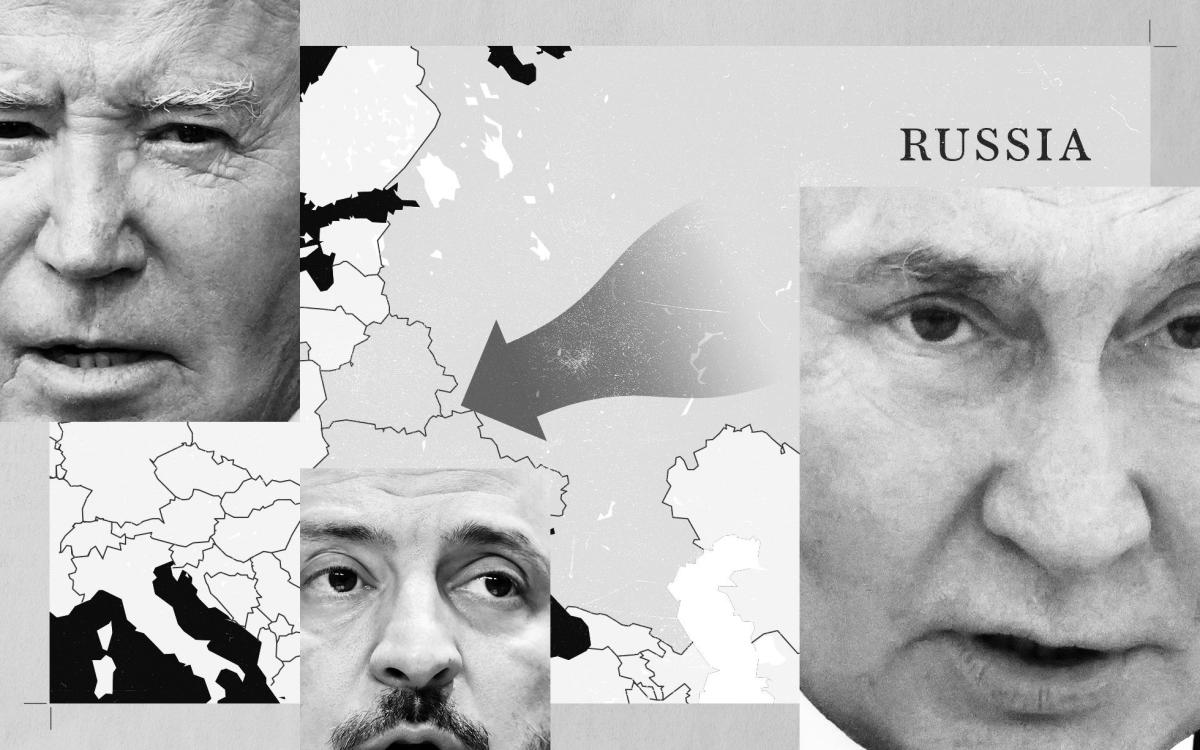For the next seven days The Telegraph is running a series of exclusive essays from international commentators imagining the consequences if Russia were successful in its war. The essays so far are listed at the bottom of this article.
Today, Dr Ivana Stradner considers what Putin’s next European conquests would be after seizing Ukraine.
Russia recently celebrated Victory Day, a major national holiday commemorating the Soviet defeat of Nazi Germany. Speaking before Russian troops in parade formation on Red Square, Putin promised Russia would soon achieve victory again – this time over Ukraine. Such an outcome would imperil not just Ukraine but also security in Europe and beyond. For his next conquests are already in his sights.
The Kremlin has been honest about its desire to weaken Nato, break Western unity and subjugate Russia’s neighbours. For Putin, the war in Ukraine isn’t just about that country. He sees the current conflict as a defining moment in his broader struggle against the West and reshaping the world order.
Putin said that Russia has no plans to attack any Nato country and, as such, too many Western leaders rest easy in the belief that Russia’s war is strictly confined to Ukraine because Nato’s Article 5 is “watertight.” But if Moscow is allowed to prevail in Ukraine, other countries – including Nato members – will be at far greater risk. Conversely, Western support for Ukraine demonstrates to Putin that he will pay an “even greater” price for an attack against Nato, and is preparing accordingly.
This fact is not lost on the countries closest to Russia. The Baltic nations, first of all, have warned that Russia could “pivot quickly” from Ukraine to invade their territory. Moldova, too, which hopes to break free of Russia’s influence and join the West, fears it would be next if Putin emerges victorious in Ukraine.
Crucially, Russia does not need to send tanks and jets to such places. A victorious, emboldened Russia, engorged on Ukraine and with spare capacity, could rely on hybrid warfare tools, utilising “little green men” both on the ground and in the information space to convince the West that a conflict in there is internal and, therefore, in the case of the Baltics, does not trigger Article 5. This is what German Defense Minister Boris Pistorius meant when warned that Russia could attack a Nato member state within “five to eight years”. It need not be as obvious as tanks rolling across a Nato border.
In fact, Russia is already working to destabilise Europe. In May, Nato warned that Russia is waging an “intensifying campaign” of cyberattacks and other “hybrid” operations against its members. British intelligence has cautioned that Moscow is even planning “physical attacks” on the West. We know Russia is recruiting far-Right extremists to carry out attacks on individuals, and European intelligence agencies say that Moscow, seeking to weaken us, has staged violent acts of sabotage across Europe and is planning more. The Russians are already attempting to interfere in this month’s European Parliament elections, and the U.S. elections in November are no doubt on Putin’s menu, too.
Meanwhile, Russia is using its hybrid warfare machine to foment chaos in Nato’s soft underbelly: the Western Balkans. Using information operations and corrupt influence, Moscow aims to stoke ethnic tensions between Serbia and Kosovo and within Bosnia and Herzegovina. As Georgia faces massive protests triggered by a proposed law that targets civil society and its aspirations to join the EU, Russia is calculating security assistance. With the elections in Moldova and its vote on EU membership this year, Russia will likely not miss an opportunity to sow further discord in the country.
A Russian victory over Kyiv would also carry serious implications in the Indo-Pacific and beyond. If Moscow is able to outlast the West in Ukraine, Beijing may conclude it would face feeble resistance to Chinese military aggression against Taiwan. Furthermore, Moscow’s aims to strengthen its military footprint in Africa, which it has already worked to do with the assistance of the remnants of its Wagner mercenary group. Fundamentally, Russia and China believe the decline of US global power is essential and have been advocating for a multipolar international system not led by Washington.

The West can only win this war if leaders understand Putin’s game. Since Putin first came to power, he has conducted an offensive aimed at gaining “reflexive control” of the West. “Reflexive control” is an old Soviet concept, foreign to most Western nations. It encompasses interfering in another country’s decision-making until the government is compelled to take actions in the Kremlin’s interest. In the words of Russia’s Ministry of Defense, Russia’s war game works through “massive psychological manipulation of the population to destabilise the state and society.” This is what Moscow did with some success in Ukraine before its Maidan Revolution in 2014 when the people fought back.
President Zelensky said “we can and should think only about how to win.” Alas, this sentiment is not shared by many in the West, leaving ambiguous what victory means and promising to stand with Ukraine “for as long as it takes.” This is a dream come true for Putin giving him the ability for a protracted war.
Make no mistake: the West has the power to ensure Russia’s defeat. Collectively, Western countries dwarf Russia economically and outclass it militarily. But they must translate that potential into reality. This requires patience and determination to stand by Ukraine and provide it with the weapons and training its forces need to win on the battlefield. Otherwise, Ukraine will just be the first domino to fall.
Dr Ivana Stradner is a research fellow at the Foundation for Defense of Democracies in Washington DC.
She has contributed to the Telegraph’s daily podcast ‘Ukraine: The Latest’, your go-to source for all the latest analysis, live reaction and correspondents reporting on the ground. With over 85 million downloads, it is considered the most trusted daily source of war news on both sides of the Atlantic.
Other essays in the ‘What If Putin Wins?’ series:










